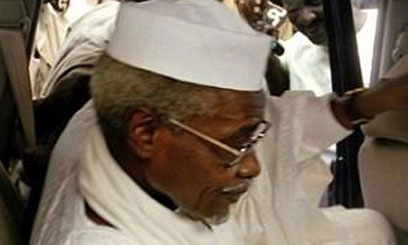Public hearings are to be held until March 21 at the International Court of Justice (ICJ) in The Hague, where representatives from both countries are to present their arguments in six hearings, scheduled to run three hours each.
Habre — who is often dubbed “Africa’s Pinochet”, in reference to Chile’s former dictator — has been living in exile in Senegal since fleeing his country after being ousted in 1990 by President Idriss Deby Itno.
Belgium in September 2005 launched an international arrest warrant against him for “serious violations of international humanitarian law” and has made four requests to Dakar to extradite him.
“Belgium is our only hope,” a lawyer for some of Habre’s victims, Jacqueline Moudeina, told journalists at a press conference this week, adding “in Belgium the only thing missing (for a trial) is the presence of Habre.”
“Our hope rests in the result of this procedure” at the ICJ, she said.
Brussels’ extradition request followed a complaint filed in 2000 by a Belgian of Chadian origin under the country’s “universal jurisdiction” law which covers crimes committed under international law.
The law allows Belgian courts to take jurisdiction in international cases when Belgian citizens are concerned.
Brussels now argues that Dakar’s refusal to prosecute Habre or have him extradited “violates the general obligation to punish crimes committed under international humanitarian law.”
It laid the complaint before the ICJ in 2009.
The man who ruled Chad for eight years is facing allegations of war crimes, crimes against humanity and torture. A 1992 truth commission report in Chad said Habre presided over up to 40,000 political and ethnic-related murders.
“We have not been cured of what we experienced,” Souleymane Guengueng, one of the Habre regime’s alleged victims, told the press conference.
“It makes me sick when I think we may never have justice,” he added.
Senegal, on request of the 53-member African Union (AU) bloc, agreed in 2006 to try Habre, but has since been dragging its heels.
President Abdoulaye Wade, who faces a run-off election this month he may lose, has repeatedly stated that while Dakar did not refuse to prosecute Habre, it did not have “ad hoc” jurisdiction or funds.
Reed Brody, a lawyer with Human Rights Watch, who spearheaded the case against Habre, said, “It is clear that Senegal will not prosecute Habre”.
“A trial in Africa would have had a greater symbolic value, but at some point, you have to say ‘enough is enough’,” he said.
Victims’ lawyer Moudeina accused Habre of “buying his protection in Senegal after departing with the Chadian public treasury.”
“African dictators protect each other to ensure there is no jurisprudence against them,” she added.










































